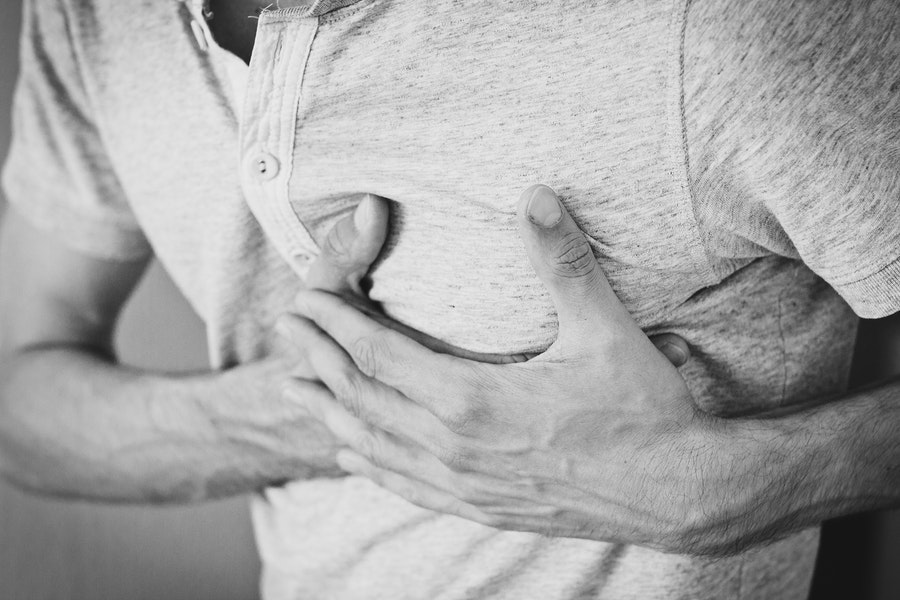Heart problems can be a serious issue, especially when they’re not properly diagnosed. If you have any of these symptoms and are unsure what’s causing them, this article will help you figure it out!
Table of Contents
How is precordial catch syndrome diagnosed?
Precordial catch syndrome is a condition that causes an abnormal pattern of heartbeats. It is most often diagnosed during a routine physical exam, but can also be detected during an exercise or medical test. Diagnosis is based on the symptoms and history of the individual. Treatment is typically with medication and/or surgery.
Call 911 if any type of chest pain is also accompanied by:
- lightheadedness
- shortness of breath
- severe headache
- nausea
How to Treat Precordial Catch Syndrome
Precordial Catch Syndrome is a condition where the heart muscle does not contract properly. This can lead to a lack of oxygen and blood flow to the heart, which can cause chest pain and other health problems. There is no cure for Precordial Catch Syndrome, but there are treatments that can help manage the symptoms.
Causes of Precordial Catch Syndrome
Precordial catch syndrome is a rare disorder that causes the heart to malfunction. It is caused by problems with the heart’s valves, which can cause the heart to become floppy or misshapen. The most common symptom of precordial catch syndrome is chest pain, which can be severe and continuous. There is no known cure for precordial catch syndrome, but treatment focuses on relieving the symptoms.
Symptoms of Precordial Catch Syndrome
Precordial Catch Syndrome, also known as POTS, is a disorder that causes episodes of excessive tiredness and dizziness that affect one or more limbs. The syndrome is most often seen in people over the age of 40, but it can also occur in younger people. The symptoms typically worsen with exercise, and can be fatal if not treated.
There is no known cure for POTS, but treatments include rest, medication, and physical therapy. If you are experiencing symptoms of POTS, consult your doctor for advice on how to address them.
What is Cardiac Arrest?
Precordial Catch Syndrome (PCS) is a life-threatening arrhythmia caused by an abnormal contraction of the heart muscle in one or more precordia. It typically affects older adults, but can also occur in young adults. Symptoms include chest pain, shortness of breath, sweating, and palpitations (rapid and irregular heartbeat). If left untreated, PCS can lead to cardiac arrest, which is a sudden loss of heart function that can be fatal. There is no specific treatment for PCS, but treatments that may help include medications to reduce the symptoms and stress relief techniques.
What are the Symptoms of Heart Attack?
Precordial catch syndrome (PCS) is a condition that is caused by blockages in the precordial vessels. The symptoms of PCS can include chest pain, shortness of breath, and dizziness. PCS can be treated with medication and/or surgery.
Causes of Heart Attack
Precordial Catch Syndrome (PCS) is a condition that affects the heart’s left ventricle. It’s caused by a blockage in the left main artery, which reduces blood flow to the heart.
Symptoms of PCS include chest pain, shortness of breath, and fatigue. If not treated, PCS can lead to a heart attack.
There’s no known cure for PCS, but treatments include rest and medication to open up the artery. If you experience any of these symptoms, please speak with your doctor.
Conclusion
Precordial catch syndrome is a rare disorder that affects the heart’s left ventricle. It significantly reduces the heart’s ability to contract and can lead to death if not treated immediately. The cause of precordial catch syndrome is unknown, but it appears to be triggered by a combination of genetic and environmental factors. Treatment typically includes medication and surgery to restore the heart’s function.







